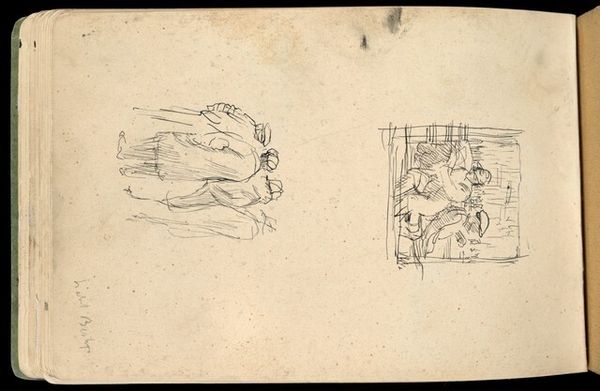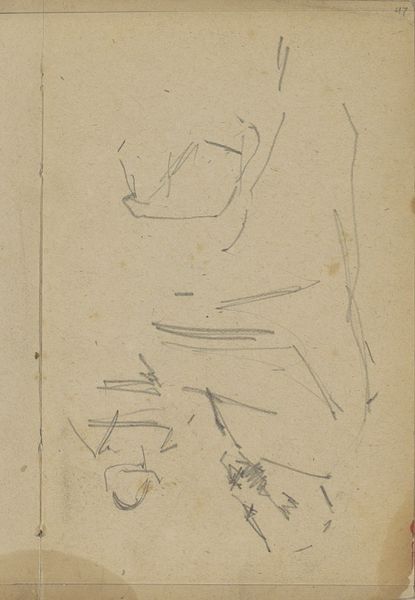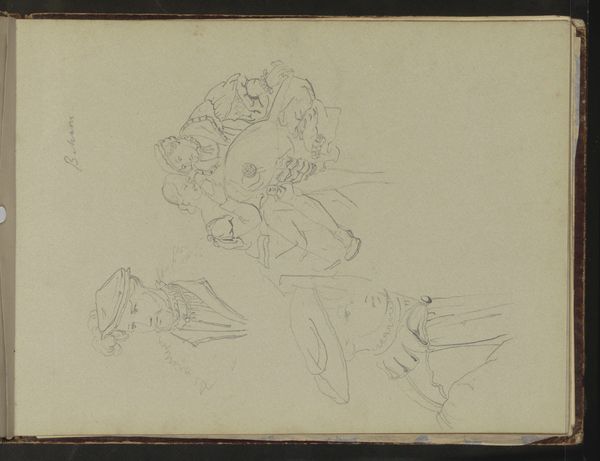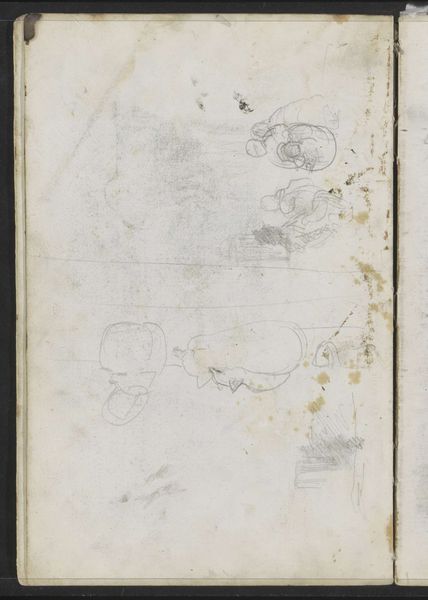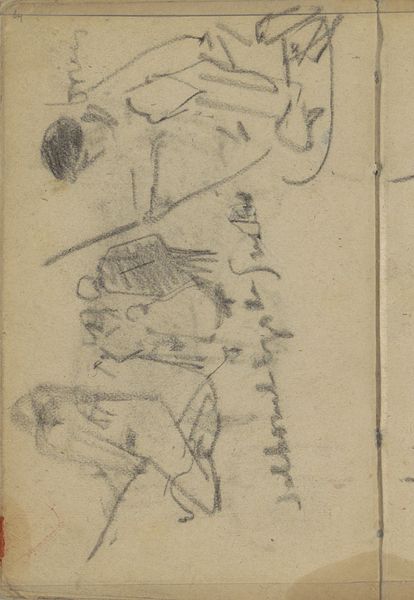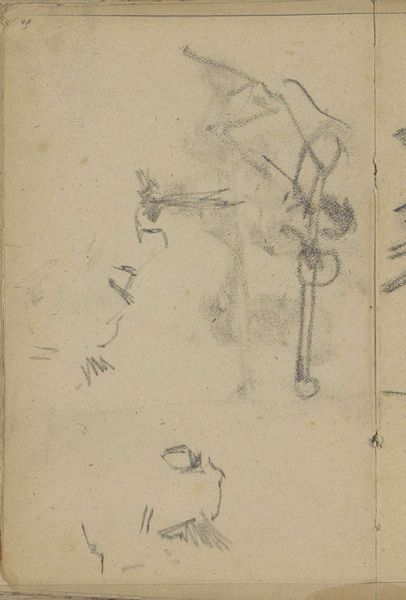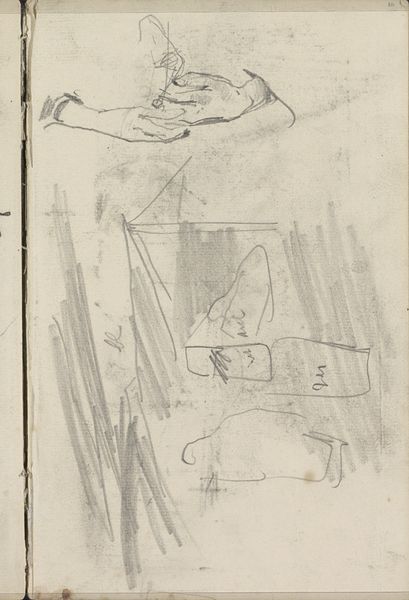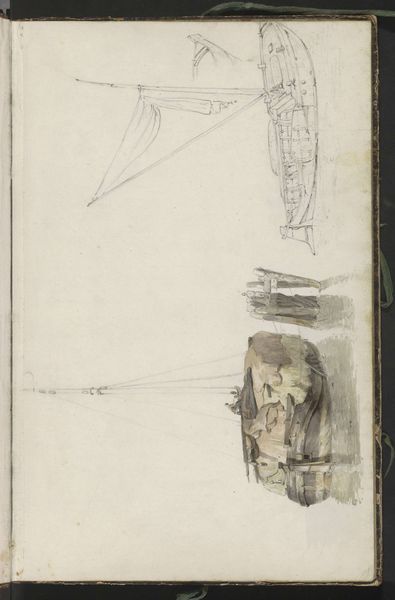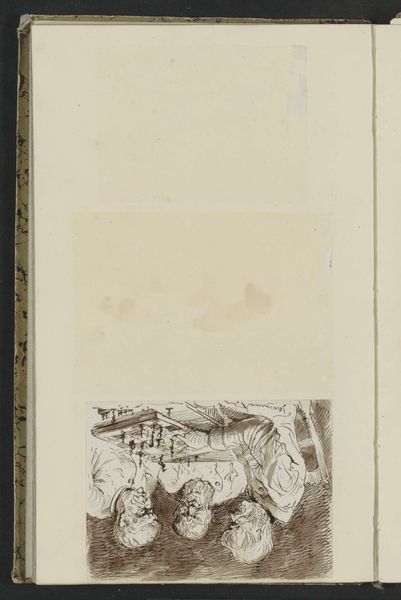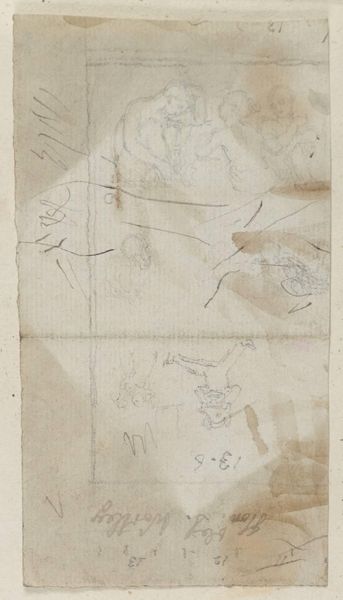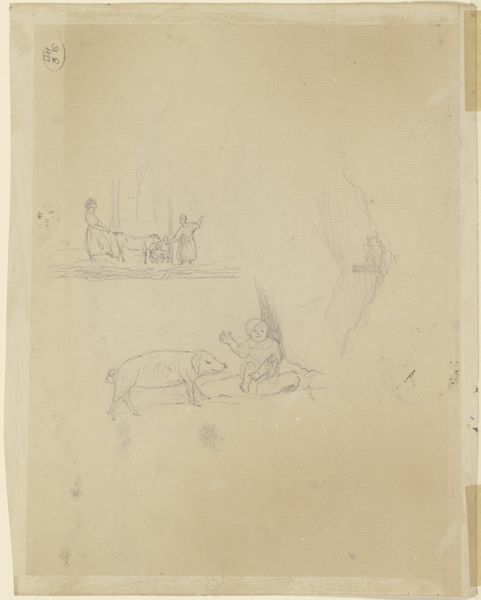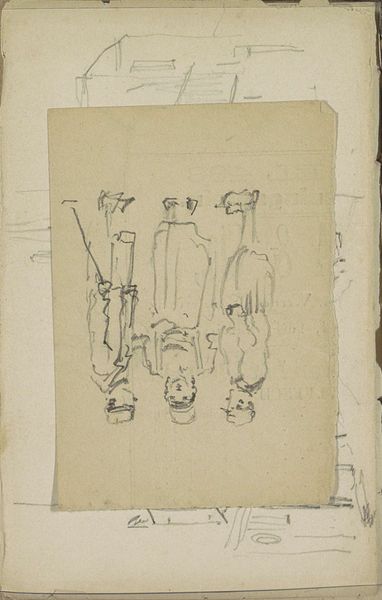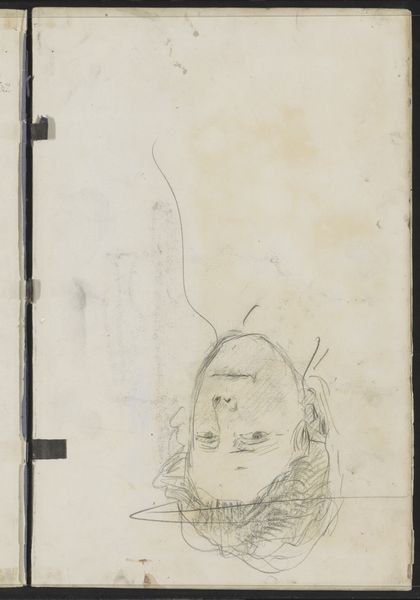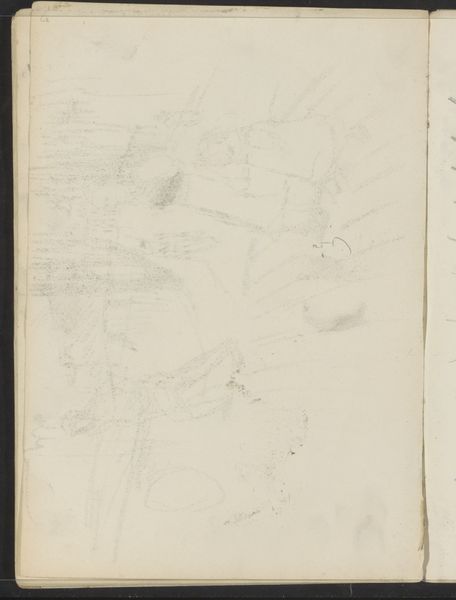
drawing, paper, pencil
#
portrait
#
drawing
#
sketch book
#
figuration
#
paper
#
pencil
#
watercolor
Copyright: Rijks Museum: Open Domain
Curator: Welcome. Today, we’re looking at Jan Veth's “Koppen van een boerin,” or “Heads of a Peasant Woman,” created sometime between 1874 and 1925. It's a drawing, rendered in pencil on paper, and resides here at the Rijksmuseum. Editor: My initial impression is the immediacy. These rapid pencil strokes really convey the subject's essence without demanding a lot of the paper itself. You feel the artist's hand moving quickly to capture these likenesses. Curator: Absolutely. Veth was quite engaged in representing the everyday lives of ordinary people. You see his work reflecting the rising social consciousness within artistic circles during that era, moving away from purely academic subjects toward representing various social classes. Editor: Yes, and look at the page itself; you can see a missing patch, a history of use. This isn't a pristine surface intended for display, but a working document. It's fascinating to consider what other sketches this book contained and how the material reality of the book itself influenced Veth's practice. Was it always readily available? Did it influence how the drawing was made? Curator: A valid question! It speaks to the political nature of representation itself, right? Who gets seen? Whose images are circulated and preserved? Veth chose to immortalize this woman through his art, bringing a slice of rural life into the urban art world, and he chose pencil, which is quite portable. Editor: I'm also intrigued by how he used shading, which gives depth. But he's also very selective about where he's placed the pencil. Some parts of the composition are left deliberately vague. Curator: These studies offer insight into the social gaze of the period. Peasant life was often romanticized or idealized, but these sketches seem more grounded. Editor: It’s more honest because of its incompleteness, perhaps? More like the day-to-day labor involved in making art. This pencil sketch invites viewers to actively piece together a fuller picture, much like the peasant woman's life that would have included a lot of work, of manual labor. It reminds me that artistic work is material and requires access. Curator: It's clear that Jan Veth offered a look at a segment of Dutch society, inviting scrutiny but hopefully sparking respect and greater appreciation for diverse human experiences. Editor: And by extension, to appreciate the means by which those experiences came down to us today, through sketchbooks, pencils and labor.
Comments
No comments
Be the first to comment and join the conversation on the ultimate creative platform.
